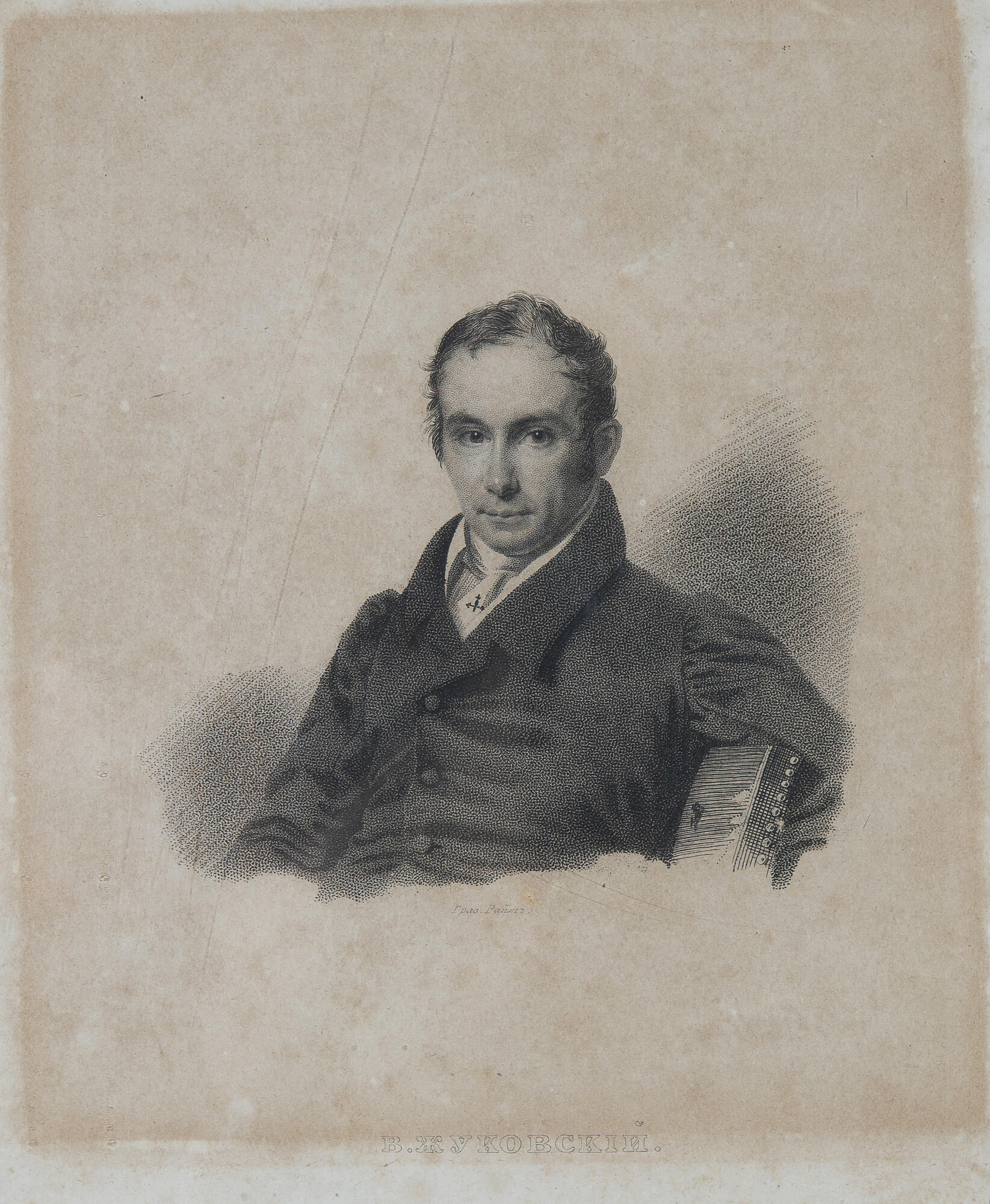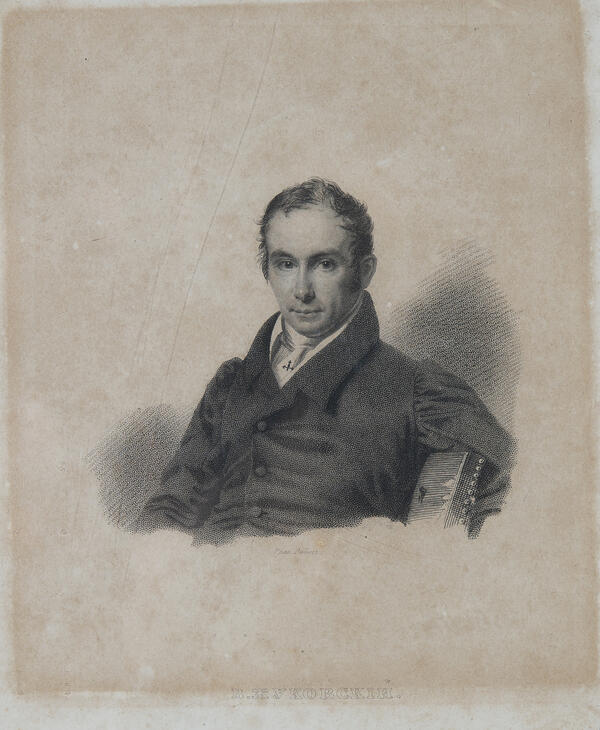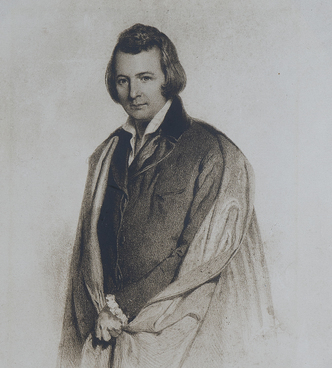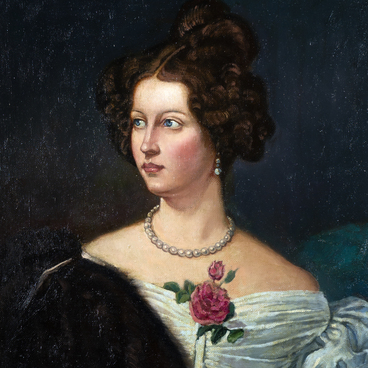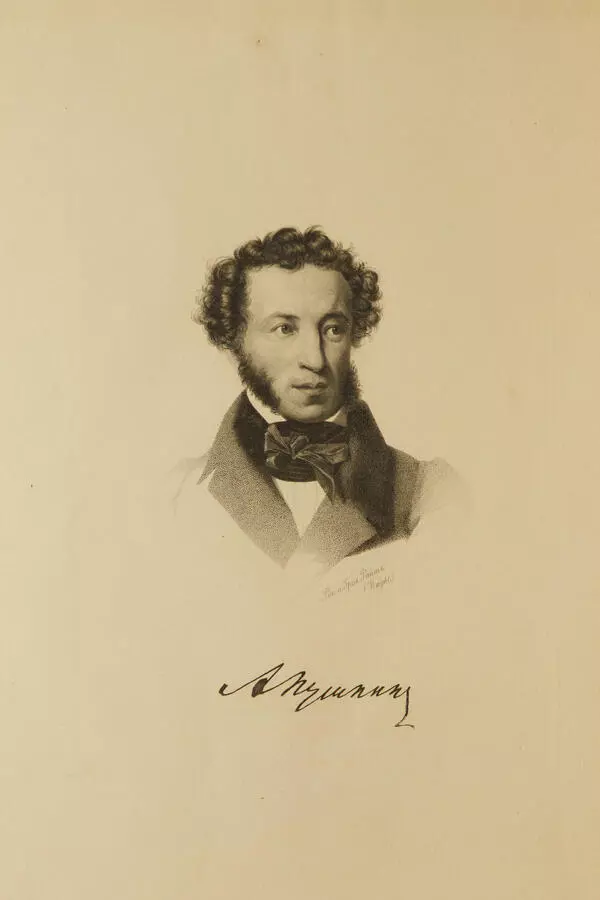The portrait of Vasily Zhukovsky was painted by the English painter and engraver Thomas Wright, who lived for several decades in Russia. Zhukovsky was one of the founders of Romanticism. He wrote many elegies, epistles, songs, romances and ballads that had a great impact upon the development of Russian poetry in the 19th century. He is also known as a translator, literary critic and educator. From 1817 to 1841, Zhukovsky taught Russian to the Grand Duchess and then Empress Alexandra Feodorovna and tutored Tsarevich Alexander Nikolaevich, the future emperor.
In addition, the poet wrote the lyrics of the national anthem of the Russian Empire ‘God Save the Tsar! ’ In literary terms, he considered himself a student of Nikolai Karamzin. Zhukovsky was also a member of the literary association ‘Arzamas’, which included famous poets as well as politicians and the future participants of the Decembrist Revolt. In the history of Russian literature, he is known as a reformer of Russian poetry and the author of the classic translation of the ‘Odyssey’.
‘Zhukovsky’s poems were not only poetry for us, but there was something else apart from the rhyming verses; they assured us of human dignity, they saturated our souls with something inexpressible — and the soul fought more vigorously against the stumbling blocks of science, and later — against the sorrows of life, ’ Vladimir Odoyevsky wrote about him.
Zhukovsky entered Tyutchev’s life very early: first as a family friend, and only later as an artist and like-minded person. In one of his poems Tyutchev recalled:
In addition, the poet wrote the lyrics of the national anthem of the Russian Empire ‘God Save the Tsar! ’ In literary terms, he considered himself a student of Nikolai Karamzin. Zhukovsky was also a member of the literary association ‘Arzamas’, which included famous poets as well as politicians and the future participants of the Decembrist Revolt. In the history of Russian literature, he is known as a reformer of Russian poetry and the author of the classic translation of the ‘Odyssey’.
‘Zhukovsky’s poems were not only poetry for us, but there was something else apart from the rhyming verses; they assured us of human dignity, they saturated our souls with something inexpressible — and the soul fought more vigorously against the stumbling blocks of science, and later — against the sorrows of life, ’ Vladimir Odoyevsky wrote about him.
Zhukovsky entered Tyutchev’s life very early: first as a family friend, and only later as an artist and like-minded person. In one of his poems Tyutchev recalled:
